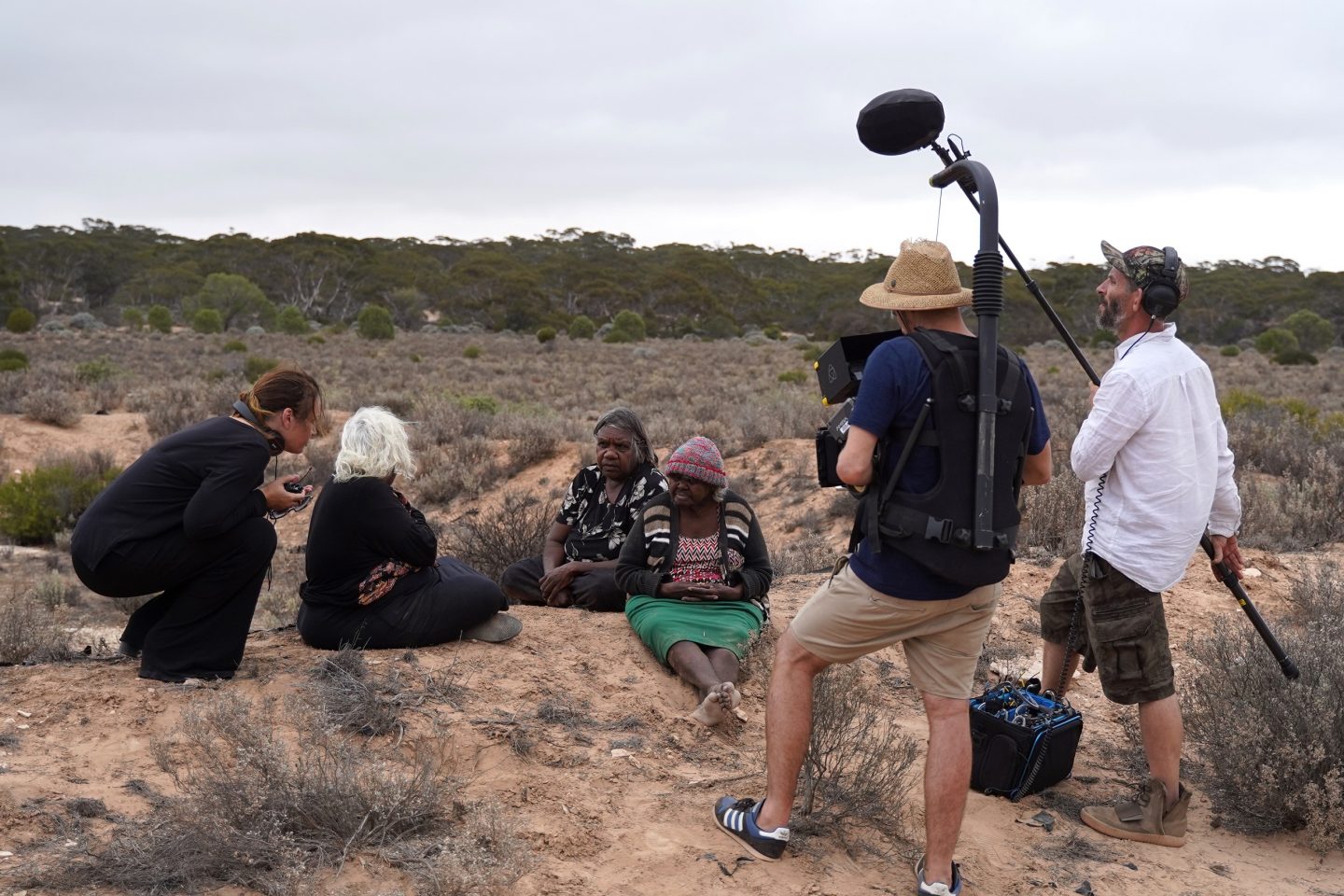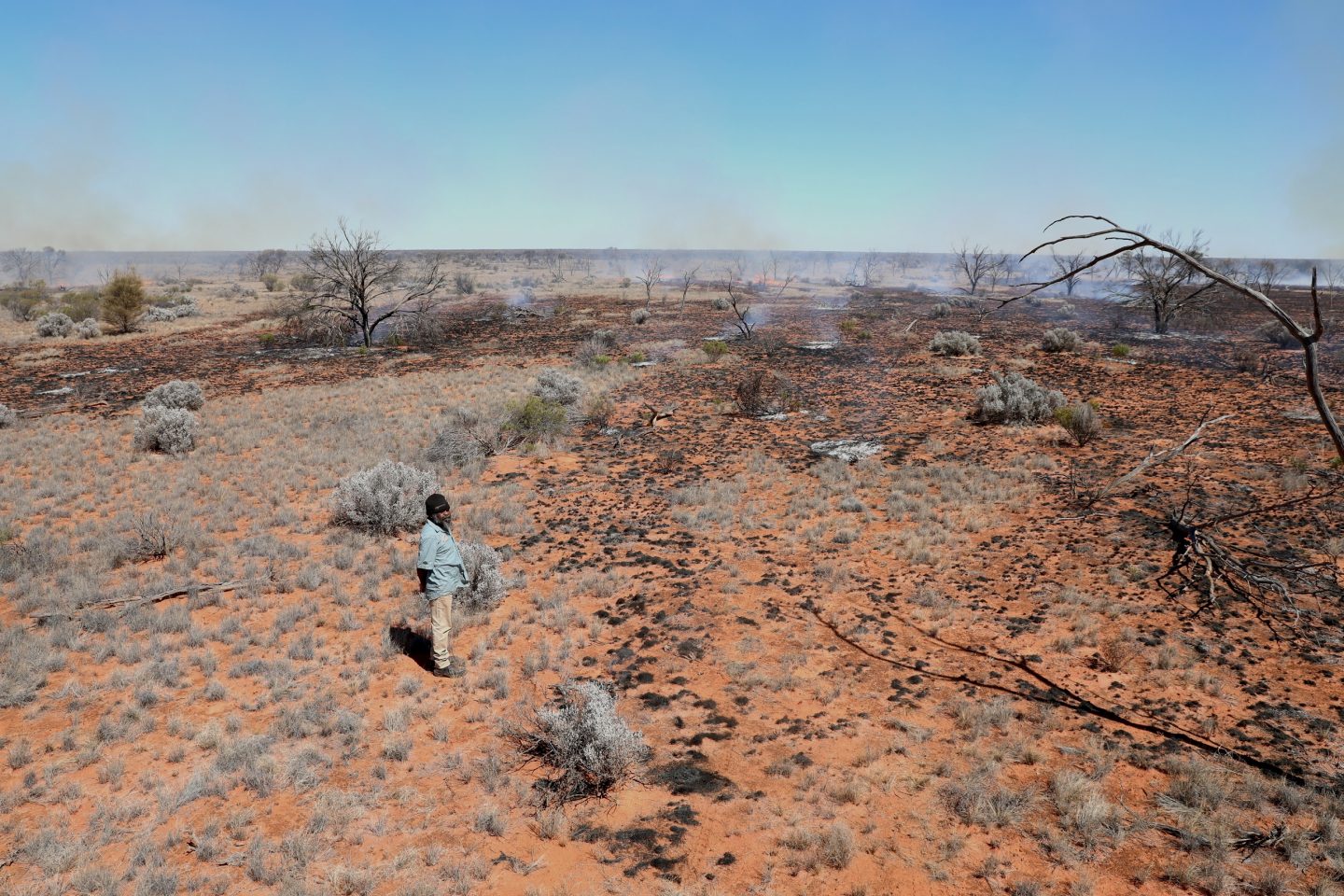In grainy newsreel footage, a voice proclaims in perfect received pronunciation “a triumph for British scientists”. Later, a prominent nuclear physicist confidently asserts that Maralinga was “totally devoid of buildings, totally devoid of people”. These are just a handful of old clips shared in ABC documentary Maralinga Tjarutja that capture the callous hubris with which the British government began nuclear weapons testing in 1956.
Half a century, a royal commission, and many deaths later, the film is a chance for the Maralinga Tjarutja community to people to tell their story. “To me it’s an incredible story of people who have been faced with the most aggressive form of colonisation, and have continued to fight for their right to look after that country – even when that country is contaminated,” filmmaker and academic Larissa Behrendt tells The Adelaide Review. “They’ve fought to make people accountable for what they’ve done, but have also gone back onto that country and continued to look after it.”
The timing of the project is partly in tandem with the release of locally-filmed ABC mini-series Operation Buffalo, a somewhat more Anglo-centric period drama rife with cold war intrigue. By contrast, Maralinga Tjarutja shows that this episode cannot be written off as an anomalous, 60-year-old event we can blame on the British Government, but one piece in deeper story of colonisation in this country.
Behrendt worked with the Maralinga Tjarutja community, and Maralinga Tjarutja Trust chair Jeremy Lebois, to bring thousands of years of knowledge and culture, and some very recent years of pain, to the screen. “They were very clear that they saw the nuclear testing as one of a series of tragedies; for them it was really important to be seen in that context,” she says.
 The filming of Maralinga Tjarutja was led by the community (L-R: Larissa Behrendt, Mima Smart, Roslyn Peters, Rita Bryant, Joshua Williams, Bryan Mason)
The filming of Maralinga Tjarutja was led by the community (L-R: Larissa Behrendt, Mima Smart, Roslyn Peters, Rita Bryant, Joshua Williams, Bryan Mason)
The construction of the Trans-Australian railway began a process of displacement and destruction for a people whose traditional country was suddenly bisected by track – another post-federation ‘nation-building’ project that blithely paved over existing First Nations. The railway project brought white men, who brought alcohol and sexual violence, while the steam engines tapped and destroyed vital water sources. The lack of water contributed to the closure of the community at Ooldea, forcing people further south as their traditional lands to the north were shut down ahead of British testing.
“That attitude that says you can come in and take a water source that’s sustained a community in a desert for over 60,000 years, and ruin it in 20, is the same mentality that says you can take their land and give it to another country to do nuclear testing,” Behrendt explains. “In a way it is a continuum of colonial attitudes that the community were faced with, that began with the coming of the railway, and culminated with the testing. That’s the point at which the community really starts to fight back to get their land returned to them.”
In a country that still struggles to confront the truths and legacies of 1770 with a clear head, the treatment of the Maralinga Tjarutja people is a potent 20th century example of the indifference, paternalism and arrogance that has often been a feature of the last two centuries on this continent.
“People, white people, looked out there and saw a desert and a wasteland,” she says. “For the Aboriginal people who’d lived there for over 65,000 years, this was a rich country with rich symbolism and culture.
“There was certainly that element of the arrogance of Terra Nullius, and only valuing what you understand in your own culture. It’s always striking to me, particularly from the archival newsreels where there’s a celebration of the power of science, this incredibly destructive western science that had already wreaked such destruction in World War Two. That takes place on country where there is knowledge of how to live sustainably for over 65,000 years – the knowledge of fire burning, of how ecosystems work, the knowledge of how to have sustainable water sources in the most arid landscape.”

Courtesy Oak Valley Ranger Group
The contrast between these two mindsets is poignantly illustrated during negotiations for the British government to take responsibility for the clean up in the 1990s. Faced with the option of a thorough, British-funded decontamination of swathes of their country – and the wholesale removal of every contaminated tree, shrub and grain of sand in the process – traditional owners made the heartbreaking choice to instead fence it off, prolonging the separation from their country to avoid destroying it.
“One thing that’s really moving when you look at the archive, is how hard people fought to get their country back,” she says. “As Jeremy says, they had to fight for something that was already theirs. What really struck me when looking at the story more broadly, and even attitudes today, is how seriously people take the responsibly of caring for their country. It doesn’t matter what happened on it, that doesn’t diminish the responsibility for caring for it. For me that’s a very moving and tangible thing.
“It’s a story of both incredible tragedy and enormous resilience and triumph – and it’s a story not enough people know. Every Australian should know it,” Behrendt says.
Operation Buffalo airs on ABC TV from Sunday 31 May
Walter is a writer and editor living on Kaurna Country.
Get the latest from The Adelaide Review in your inbox
Get the latest from The Adelaide Review in your inbox